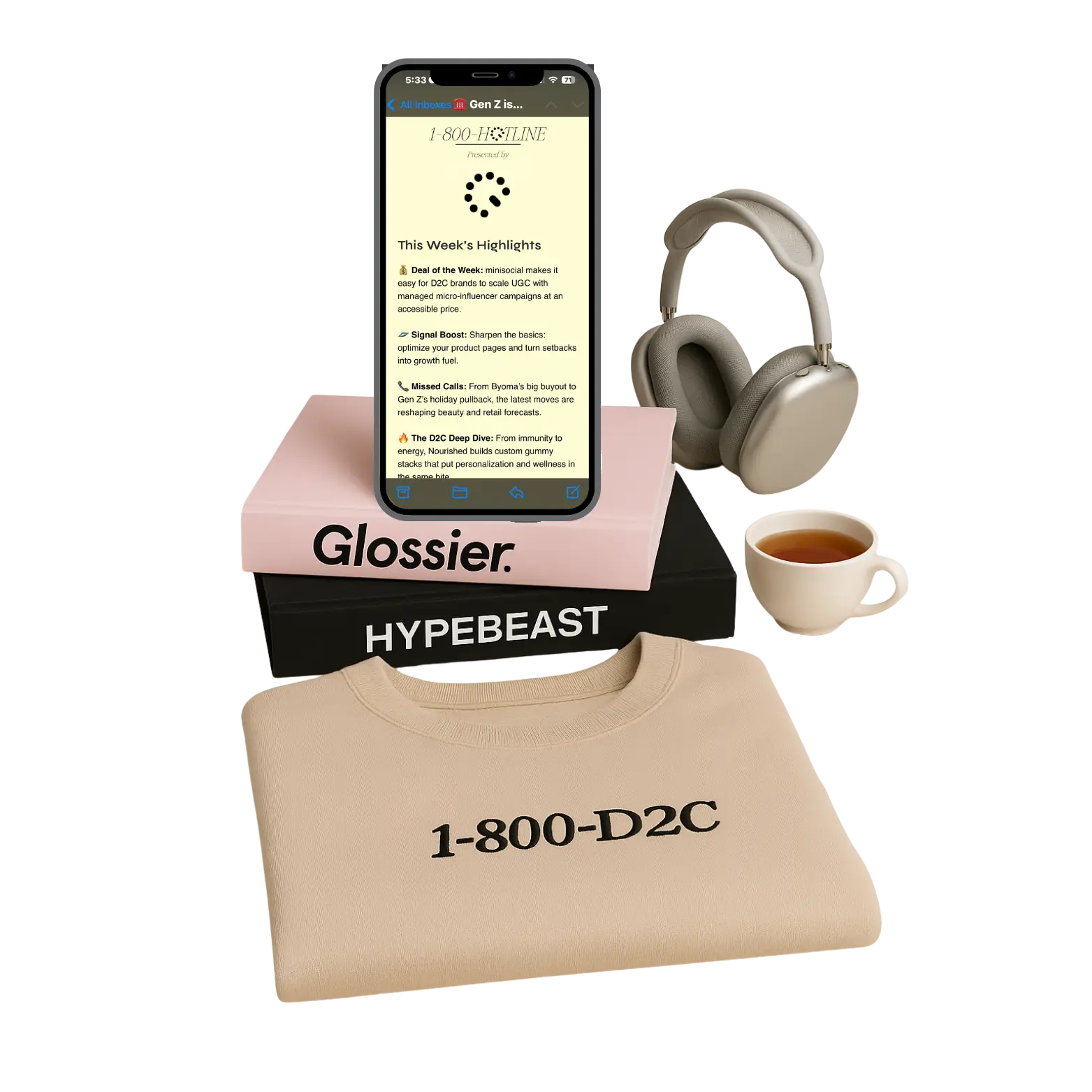
Andrew Olaleye: Aneto, my co-founder, and I started Chatdesk, now Remarkable AI, in 2016. At that time, we both had comfortable careers. Anato had been a product manager at Google for over seven years, while I had managed various clients' digital transformation plans and implementations at McKinsey for over three years.
During this period, Aneto began exploring the future potential of machine learning at Google, particularly how it intersects with traditional areas like phone and tech support. He reached out to me with questions about the customer experience space, specifically focusing on what leaders were doing to advance the future of customer experience.

He had an inspiring vision. He believed that we were moving towards a messaging-based customer experience, where customers could engage with brands across multiple channels seamlessly. He wanted to make it easy for customers, addressing the traditionally painful and inefficient space of customer support. High turnover rates, low pay, and high expectations were common issues in the field. Brands desired to offer better support but often couldn’t afford it, resulting in long response times and impersonal answers for customers.
Aneto's vision was to provide a better customer experience, not just for the customers but also for the support agents. This is how the idea of Remarkable AI was born.
Andrew Olaleye: It's about super fans of brands. For example, a makeup artist working for a beauty brand or a pet owner working for pet companies. These are people who really understand the types of questions being asked and want to make a little extra money doing so. Aneto's vision was to start a company that helps these brands scale their customer support using a combination of machine learning and human expertise, specifically leveraging super fans.
For a few months, we discussed this concept and reached out to potential customers for feedback. The idea quickly took over our lives. Eventually, we had to decide whether to leave our comfortable careers to pursue this venture. We were both in our early 30s, around 30 or 31 years old, and decided it was the right time. So, we left our jobs and went full steam ahead.
Andrew Olaleye: Our mission combines AI with human expertise to create a seamless customer support experience. When Aneto first shared his ideas, I was excited about our mission to create jobs and help companies maximize the ROI of their customer engagements. The job creation aspect was particularly compelling, given its importance both in the US and globally.
Many platforms exploit their workers, incurring high costs. We saw an opportunity to change that by engaging with stay-at-home parents, partnering with organizations like the US State Department and Hire Our Heroes, a nonprofit helping military spouses find work. We also aimed to connect with college students looking to earn extra money by supporting brands they love. This aspect of our mission really energized us.
We wanted to leverage technology to help super fans provide the right responses to customers and deliver a personalized experience. Our approach sets us apart in several ways. Firstly, we focus on local super fans who genuinely understand the brand. Currently, over 60% of customer support agents churn within a year, forcing brands to repeatedly invest in finding, onboarding, and training new talent. Our model addresses this by tapping into people who are already familiar with the brand, and we handle the onboarding and training.
Secondly, our technology complements existing systems. We've developed over 20 machine learning models tailored to different industries, such as pet care, beauty, and fashion. These proprietary models allow us to understand the unique conversations within each category and maintain the brand voice effectively. This capability is crucial in delivering a high-quality, consistent customer support experience.
Andrew Olaleye: With our tech-enabled solution, brands can scale their support on demand using super fans. But our mission goes beyond just enhancing support. We aim to help brands increase revenue, build stronger relationships with existing customers, and even attract new ones.
Imagine you're a beauty company with a promotion for a new lip gloss. With our platform, akin to GPT for Shopify, you could identify every customer who purchased lip gloss or related products in the past year, hasn’t purchased in over six months, had a good experience, and spent over $250 with your brand. Remarkable AI not only identifies these segments ripe for upsell, win-backs, and churn prevention, but also notifies the brand to reach out to them at the right time.
This is the unique advantage of Remarkable AI. Instead of a small email marketing or performance marketing team sifting through data to find segments, our platform does it for you. It can recommend, for instance, which customer segments to target for a new lip gloss based on past purchases. This targeted approach can significantly increase conversion rates, often between 7% and 12%.
While many companies use tools like Klaviyo and MailChimp for broad top-of-funnel strategies, we offer a more nuanced and intelligent way to identify and focus on specific customer segments. Instead of sending promotions to 200,000 people, you might target 2,000 or 500 highly relevant customers, achieving a much higher return on investment. In a time when companies are running lean, this precision in marketing is invaluable.
Andrew Olaleye: We believe that AI combined with human-in-the-loop support is the future, at least for the next three to five years. AI will make significant strides in handling many types of support tickets, but there will still be a lot of nuance in customer inquiries. Balancing AI efficiency with human connection is crucial, especially for interactions with VIP customers where a personal touch is vital.
Think of it like when banks introduced ATMs: they handle basic transactions efficiently, but for more complex or sensitive services, you still need human interaction. For example, when customers want to cancel their service or request a refund, that’s a critical moment for a brand to engage personally, understand their concerns, and turn a potentially negative experience into a positive one. It’s challenging for a bot to manage these delicate interactions entirely on its own.
Companies that embrace a blend of AI and human support will succeed. You've probably experienced reaching out to customer support and immediately recognizing when you’re interacting with a bot. Often, you just want to speak to a human to get your specific issue resolved. This underscores the importance of maintaining a balance between automated and human support.
My hypothesis is that customer experience and marketing will continue to converge. Traditionally, marketing's role has been to attract the right customers, and the support team's role has been to ensure their satisfaction. Now, support teams are increasingly handling pre-sale questions, blurring the lines between marketing and support.
For example, offshore teams in the Philippines or India might excel at answering straightforward post-sale questions like 'Where’s my order?' using scripts and macros. However, when there’s an opportunity to drive a sale, you want someone nuanced, empathetic, and knowledgeable about the product.
Take Mars Petcare, one of our customers. We find vet techs who understand the specifics of dog care, treatment, and nutrition. This expertise builds trust and comfort with customers, showing them they’re speaking with someone who genuinely understands their needs, rather than a generic support agent copying and pasting responses.
Our vision has always been to leverage machine learning and AI to capture the brand voice and help scale support quickly and personally. By combining technology with human insight, we aim to enhance the customer experience, build stronger relationships, and ultimately drive growth for brands.
Andrew Olaleye: My co-founder might disagree, but when we started, we adopted a 'land and expand' approach. Our strategy wasn’t about selling large contracts upfront. Instead, we focused on onboarding clients, demonstrating value, and growing with them. We practiced what we preached about driving customer retention with our own clients. Our approach involved getting customers onto one product, then gradually introducing them to additional products.
In hindsight, we might have moved faster if we had immediately focused on what we're doing now: scaling not only customer support but also marketing. We received feedback indicating that while we were working across one or two products and attracting great brands, some customers who were a good fit for one product weren’t the best fit for our future, flagship product.
Reflecting on this, we realized that instead of focusing on landing and expanding to that future product, we should have been laser-focused on building and iterating on that future product from the start. This would have prevented us from wasting time and allowed us to go directly to what we believed was the future.
I was reading the Recharge story on Shopify, where they initially launched multiple apps, but Recharge became their standout success. Similarly, once we identified our future product, we should have concentrated our resources and storytelling around it. If we had started with that focus, we likely would have reached our current position much faster and with greater efficiency.
Aftership, Recharge, Shopify, Gorgias, Yotpo, Attentive.
Andrew Olaleye: Always learning is one of our core values, and we preach it endlessly to our team members. It's about being curious about the approaches we take to acquire and retain customers. Aneto and I have learned a lot about what works and what doesn’t while building this platform and the operations that help companies onboard team.

Gorgias is one of the most popular helpdesks for D2C brands. It centralizes all your support tickets in one place and enriches them with lots of extra context about a buyer's profile. Through Gorgias, you can connect directly to your eCommerce store and edit orders, modify subscriptions, and refund payments without leaving your helpdesk.
Discover new D2C brands, new eCommerce tools and read in-depth founder reviews each week.
